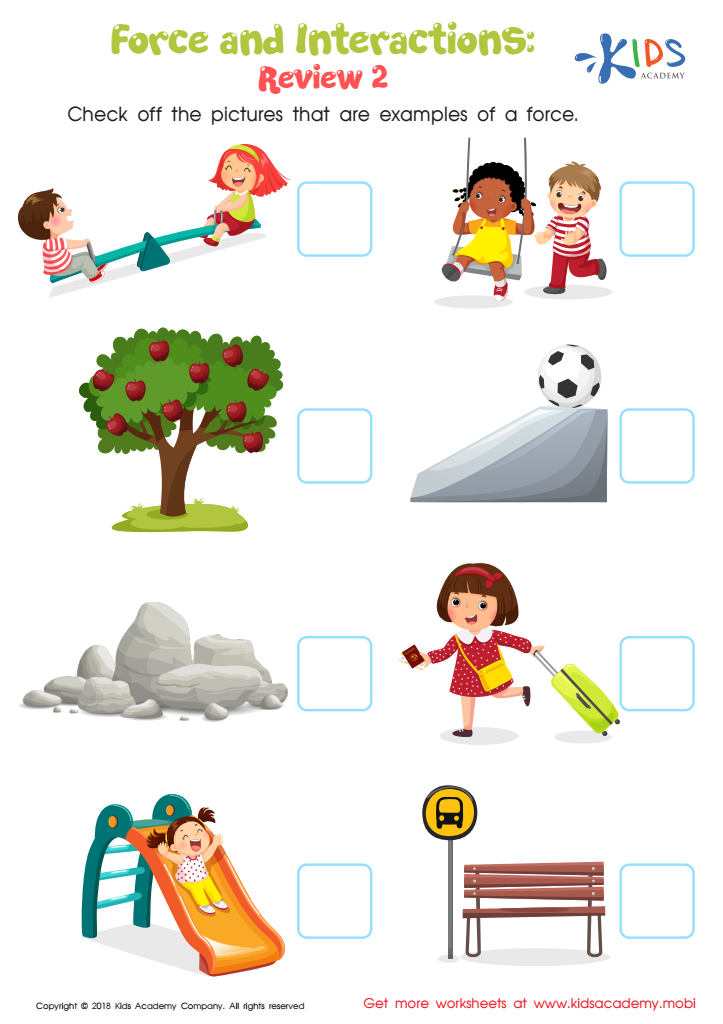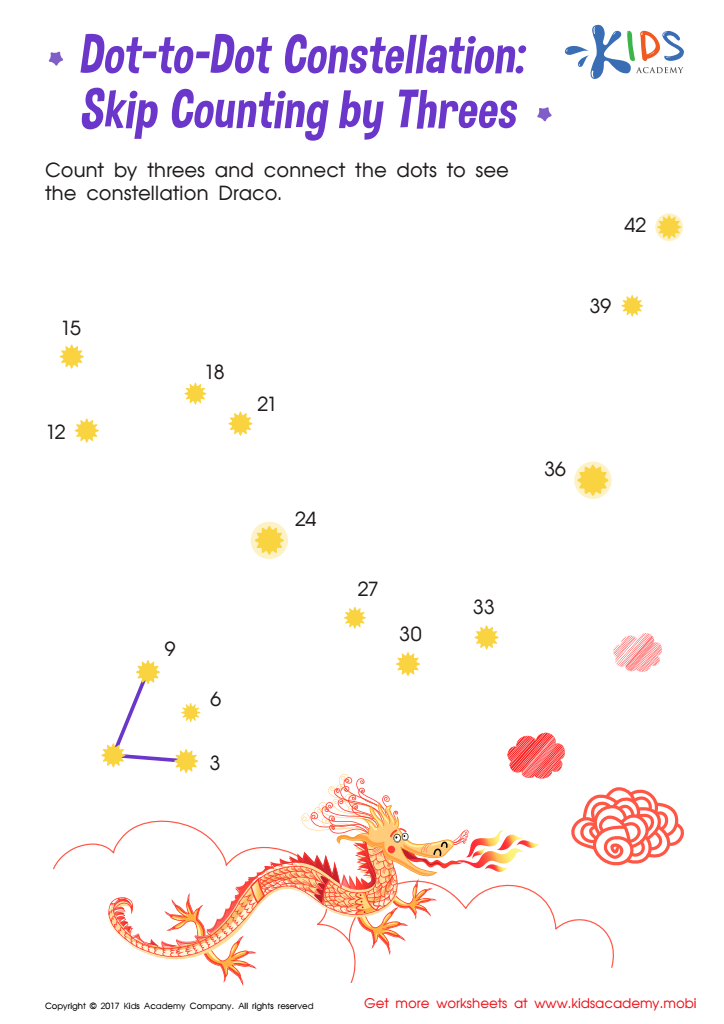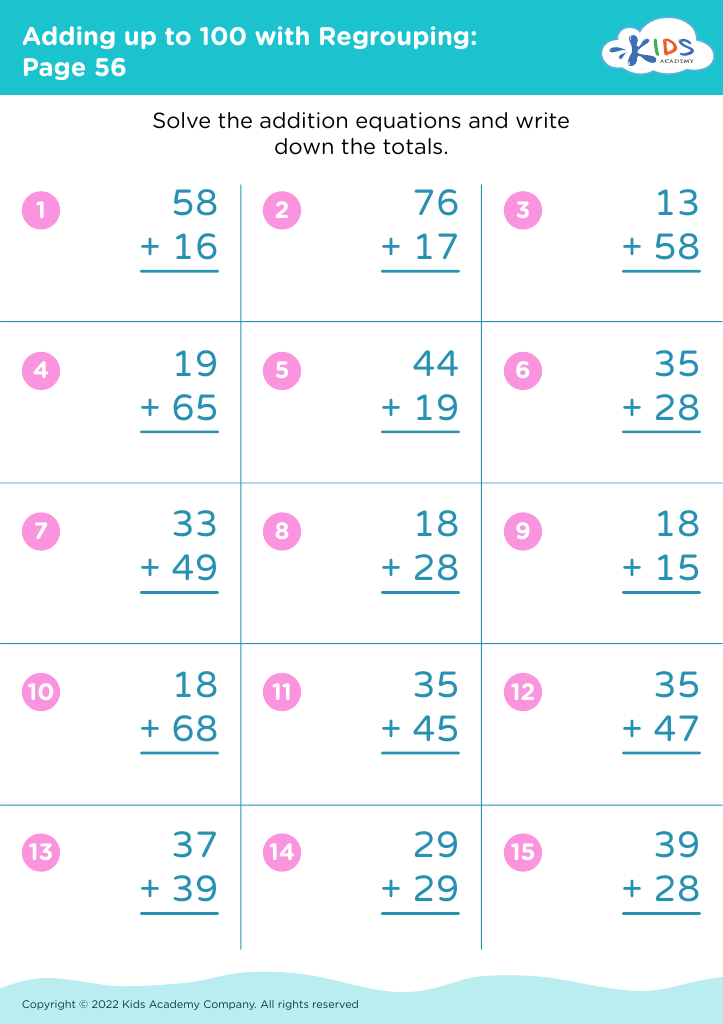Developing creativity Worksheets for Ages 5-8
3 filtered results
-
From - To
Discover an engaging collection of developing creativity worksheets designed specifically for children aged 5-8. These worksheets aim to enhance imaginative thinking and artistic skills through fun and interactive activities. Each exercise encourages young learners to express themselves, think outside the box, and explore new ideas. From drawing prompts to story-building tasks, every worksheet is crafted to stimulate creativity and boost confidence. Perfect for home or classroom use, our resources cater to various learning styles and can be easily printed. Foster a love for creativity in young minds and watch as they flourish through playful, thoughtful learning experiences!


Force and Interactions: Review 2 Worksheet


Developing creativity in children ages 5-8 is crucial for several reasons. First, this developmental stage is marked by high levels of imagination and exploration, making it the ideal time to foster creative skills. Encouraging creativity helps children express their thoughts and emotions, building psychological resilience and confidence. As they engage in creative activities like painting, storytelling, or role-playing, they enhance problem-solving abilities and critical thinking, essential skills for future academic success.
Creativity also supports cognitive development. Activities that stimulate creativity allow children to think outside the box, make connections, and approach challenges innovatively. This flexibility is vital in an ever-evolving world where adaptability is key to overcoming obstacles in learning and life.
Moreover, creativity connects children with their peers, fostering communication and collaboration. Through group activities or creative projects, children learn to share ideas and respect differing viewpoints, cultivating emotional intelligence.
Finally, a focus on creativity prepares children for a future where jobs may require unique skills and innovative mindsets. As educators and parents prioritize creative development, they provide children with the tools necessary to navigate complexities and thrive, not just academically but also personally and socially. Promoting creativity is investing in a brighter, more adaptable future for our children.
 Assign to My Students
Assign to My Students






















